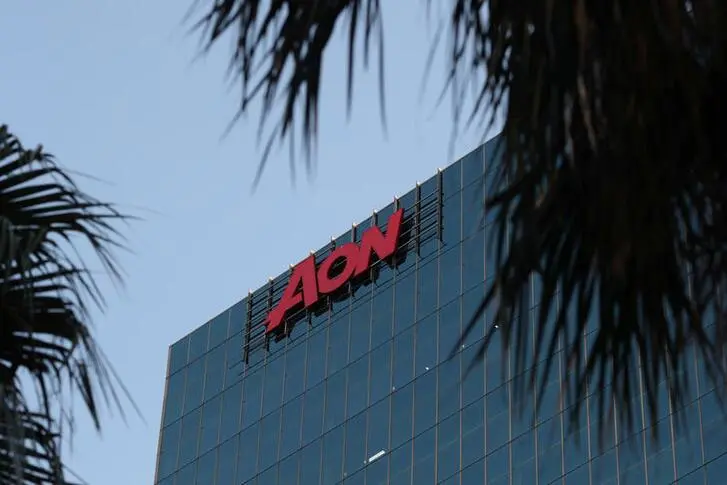PHOTO
(The author is a Reuters Breakingviews columnist. The opinions expressed are his own.)
NEW YORK - A merger between Aon and Willis Towers Watson is dead, again. The insurance brokers scrapped their $30 billion tie-up on Monday – their second attempt – because U.S. antitrust regulators opposed it. But it’s possible to imagine an eventual reincarnation. The disruption of financial services means there may come a time when the idea no longer poses a threat.
The Department of Justice’s case was strong. Three big insurance brokers dominate the industry. The combined market share of Aon and Willis exceeds 40% in five big markets, such as reinsurance broking. Aon didn’t help its case when its chief broking officer told colleagues that the companies operate in an “oligopoly which not everyone understands,” according to the complaint.
A combination will presumably incite regulatory opposition for the near future. The job of an insurance broker is to understand risks and protect a client against them in the best and cheapest manner. Multinational companies are probably stuck with the big three, as smaller rivals often lack the sophisticated analytics, specialized knowledge in multiple international markets, and existing relationships with customers.
Over the long run, the calculus may change. The growth of internet services makes it easier to for insurers to sell directly to clients. New platforms may emerge that make it easier for big companies to mix and match what insurance they buy, rather than go through a broker. That could put a deal back on the table.
Regulators will re-examine deals they were dead set against, if technology erodes the dominance of firms. Sirius Satellite Radio and XM Satellite Radio merged over a decade ago, after the Federal Communications Commission, which had been previously opposed to the idea, decided internet streaming meant these businesses were no longer monopolies.
Based on a similar logic, office supplies retailer Staples now hopes to do a deal with Office Depot, following attempts that were shot down in 1997 and 2016, and an offer that Office Depot turned down in January. Staples hopes a more limited deal of $1 billion for its target’s consumer business and the rise of competitors like Amazon.com will finally mean M&A success.
Perhaps Aon and Willis will eventually revive their merger idea, in a much-changed market. The two said the merger would result in $800 million of annual cost savings, which is surely worth having. Of course, by the time the deal is doable, there may be much less for the two insurance brokers to celebrate.
CONTEXT NEWS
- Aon and Willis Tower Watson said on July 26 they had agreed to terminate their $30 billion merger agreement. In June, the U.S. Department of Justice had sued to block the deal between the two insurance brokers, which would have catapulted the combined firm ahead of Marsh & McLennan as the world’s largest.
- Aon will pay a $1 billion termination fee to Willis, it said.
- In early March 2019, Aon said it was in early-stage negotiations with Willis. Aon shares fell 8% on that news, and the company said the following day that it was scrapping the plans.
(The author is a Reuters Breakingviews columnist. The opinions expressed are his own.)
(Editing by John Foley and Marjorie Backman) ((SIGN UP FOR BREAKINGVIEWS EMAIL ALERTS http://bit.ly/BVsubscribe | robert.cyran@thomsonreuters.com; Reuters Messaging: robert.cyran.thomsonreuters.com@reuters.net))





















